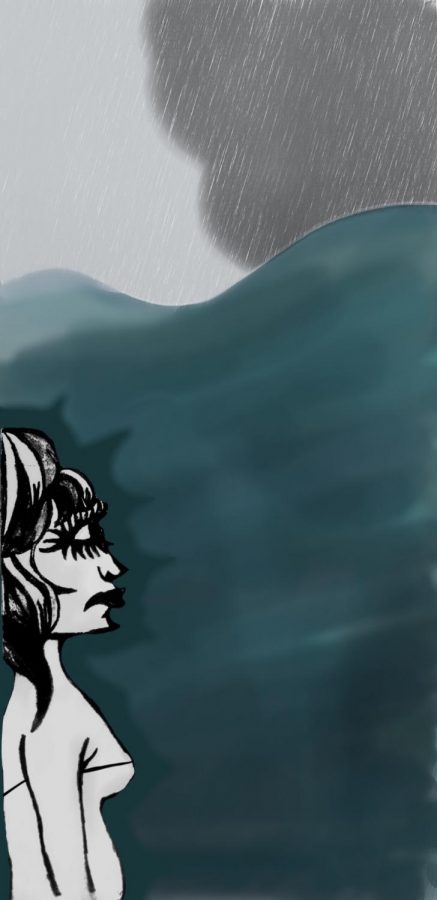The numb everyday: My battle with clinical depression
OPINION
Many people look back and realize years later when they hit rock bottom. I knew it in the moment. It was the first summer of my high school career and I remember staying up until 4:30 in the morning crying because it felt like the world was collapsing in on me.
In the movies, this is where I’d realize I needed help, and in a dramatic moment of character development I’d seek out a friend or a therapist to overcome the horrible trauma I was forced to endure and everything would fall into place again.
But it didn’t work like that for me.
I wasn’t overcoming the death of a loved one or a horrible family situation. I have wonderful parents, and incredible friends, and I go to a school I legitimately like. Instead, because of my genetics, my brain decided that it didn’t want to produce enough serotonin. I, like many people, inherited my depression and because of that, I did nothing about it for years.
Depression is often seen as sort of an unstoppable sadness. The sadness is potent and easy to notice but that’s not necessarily the everyday experience. It’s more so the absence of joy in your life.
It’s not like you wake up one day and go “Wow! I don’t feel joy anymore!” It’s a slow decline. The decline is subtle and it can be hard to notice until you’re in the midst of it.
Another thing people don’t talk about with depression is how easy it is to get angry. When my depression was at its worst, I would just get angry incredibly easily. I didn’t want to snap at my family or friends, but it happened.
Depression is different for everyone; for me, it’s an overwhelming numbness. It feels like the air is liquid lead just pouring over me. The world feels heavy and I have to fight to move forward.
Sometimes it feels like I have to fight to feel anything. It’s like I don’t have many options for emotions. When I did get to feel something, it was like spinning a prize wheel except my only options were sadness or anger.
I realized that I needed treatment around the time that I got formally diagnosed. Getting diagnosed was half of the battle for me because of the guilt I felt. I’ve watched a lot of people close to me struggle with depression and I felt like I was devaluing their experiences if I mentioned that I thought I was depressed because I didn’t have unspeakable trauma.
I finally got treatment around midway through my junior year. I got put on Zoloft and it’s helped. It’s not a particularly dramatic story of recovery but I don’t think it has to be. I simply got put on medication and now my brain handles serotonin better.
Much like sliding into depression, getting out of depression is a slow process. There’s no immediate, dramatic result to medication. It’s subtle and slow. But I remember being alone with my thoughts one day and realizing that instead of a crushing numbness I just felt fine. It may not seem life-changing to most people, but to me realizing that you can feel joy again is one of the best feelings in the world.
Your donations directly fund the Lane Tech student journalism program—covering essential costs like website hosting and technology not supported by our school or district. Your generosity empowers our student reporters to investigate, write, and publish impactful stories that matter to our school community.
This website is more than a publishing platform—it's an archive, a research tool, and a source of truth. Every dollar helps us preserve and grow this resource so future students can learn from and build on the work being done today.
Thank you for supporting the next generation of journalists at Lane Tech College Prep!

Sophia is currently a Senior at Lane Tech. This is her second year in journalism and her first as an editor. She has a passion for politics and follows...

